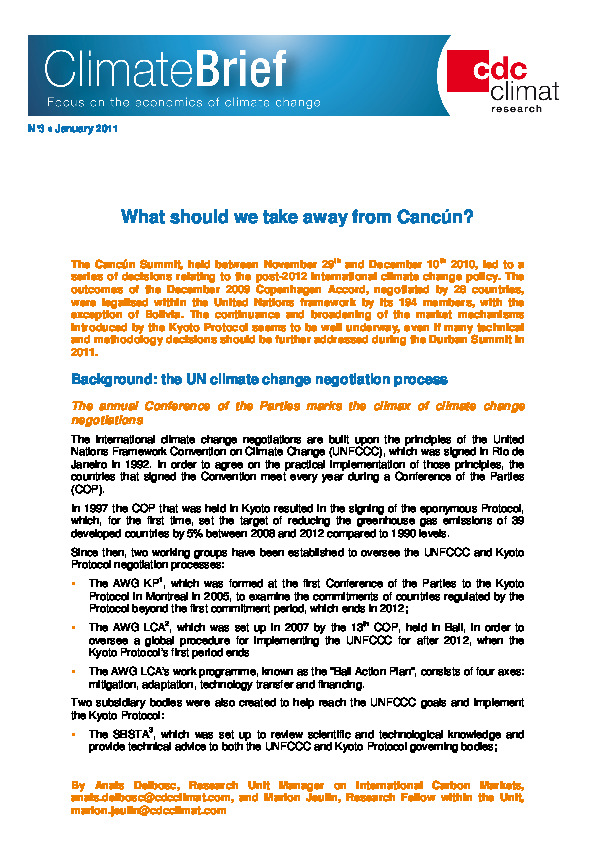What should we take away from Cancún?
The Cancún Summit, held between November 29thand December 10th 2010, led to a series of decisions relating to the post-2012 international climate change policy. The outcomes of the December 2009 Copenhagen Accord, negotiated by 28 countries, were legalised within the United Nations framework by its 194 members, with the exception of Bolivia. The continuance and broadening of the market mechanisms introduced by the Kyoto Protocol seems to be well underway, even if many technical and methodology decisions should be further addressed during the Durban Summit in 2011.
